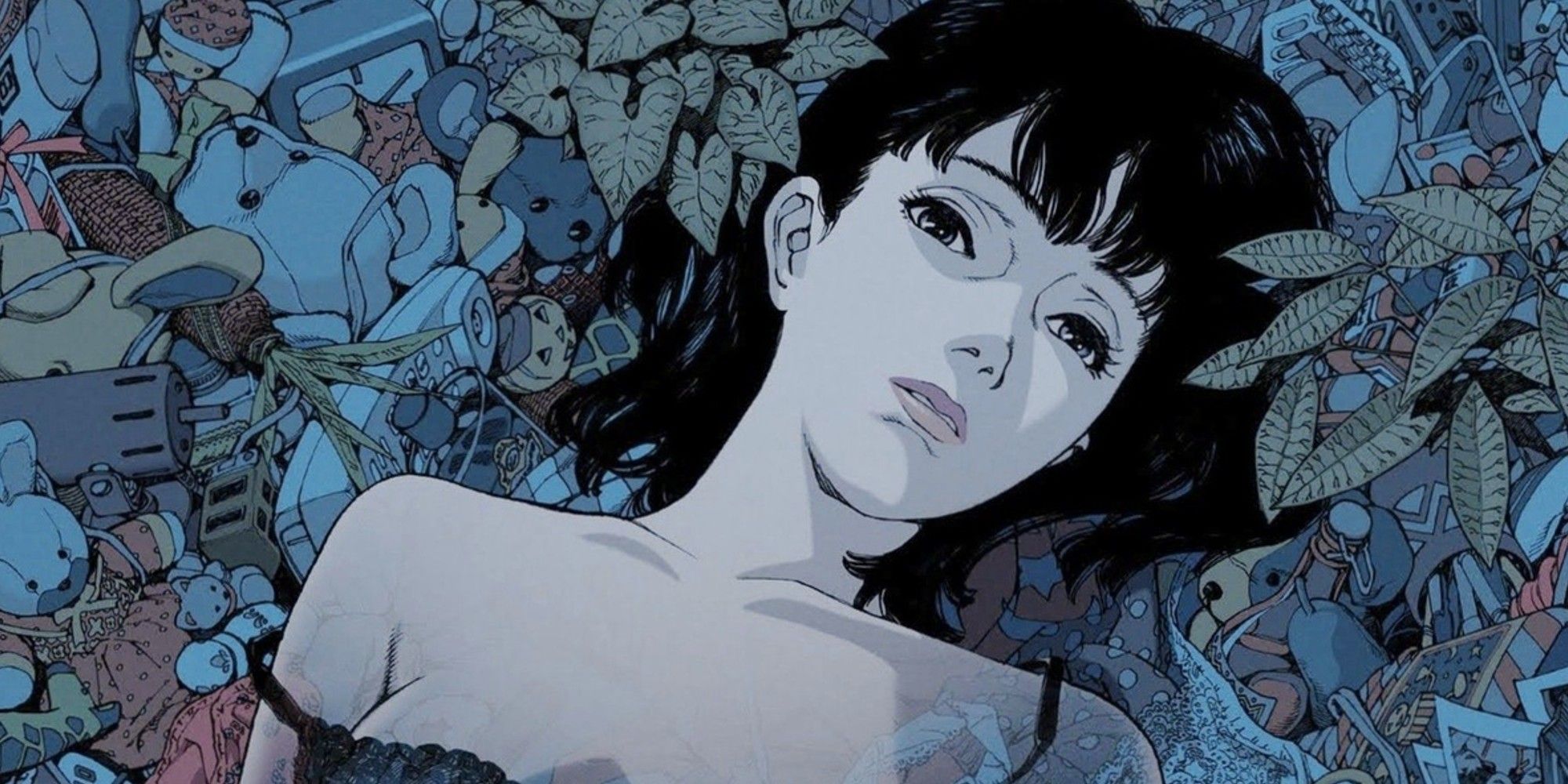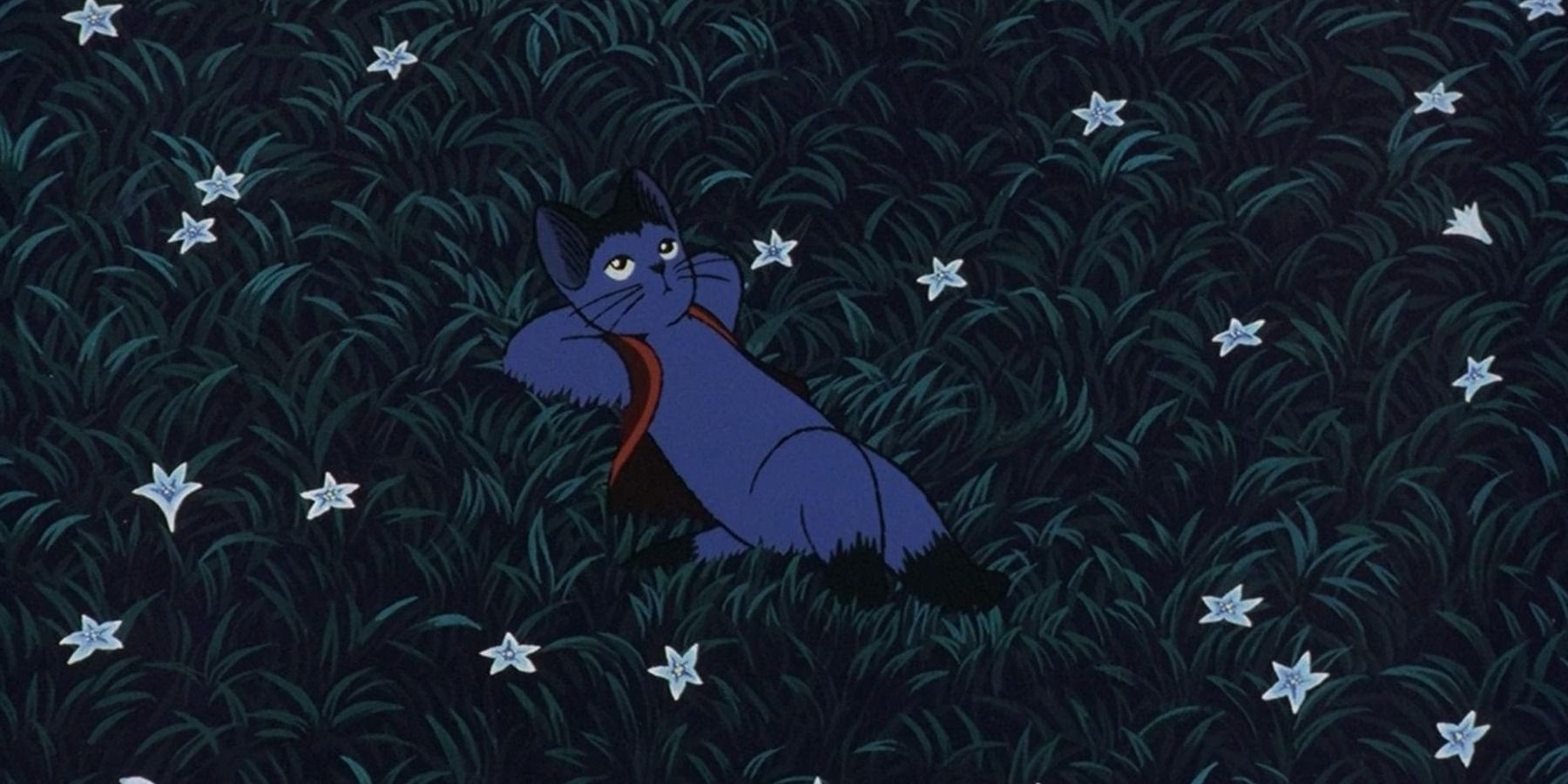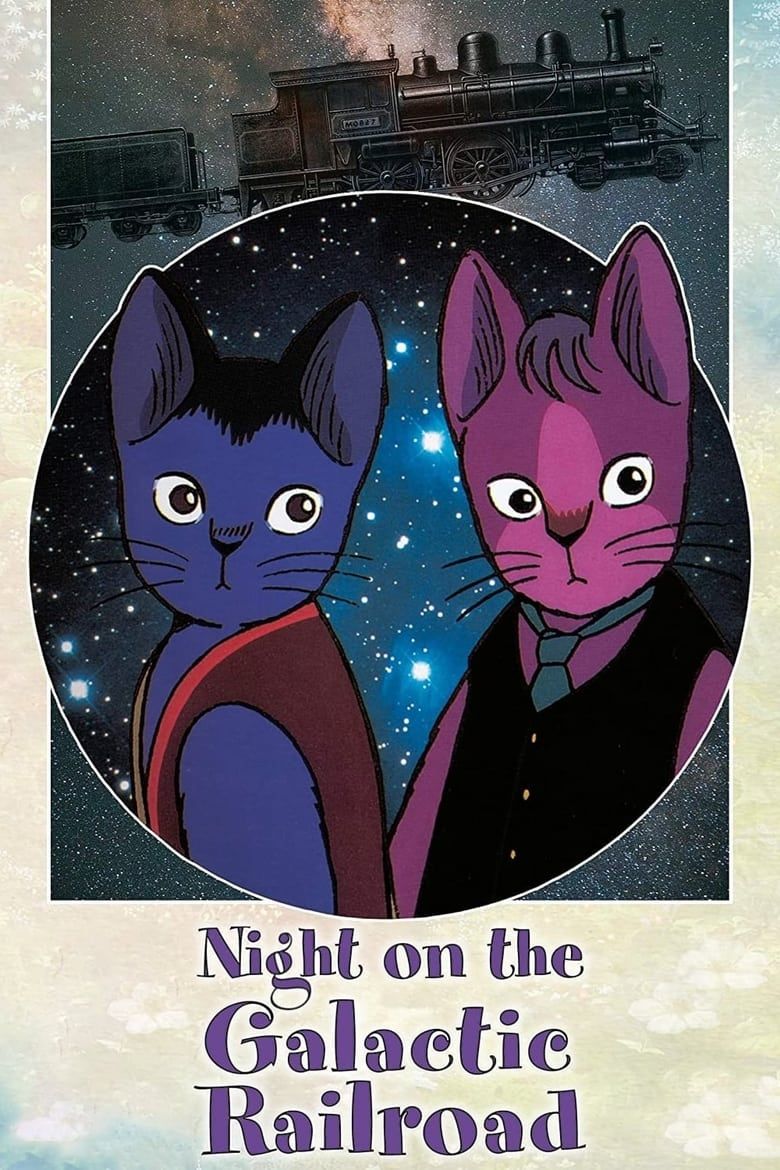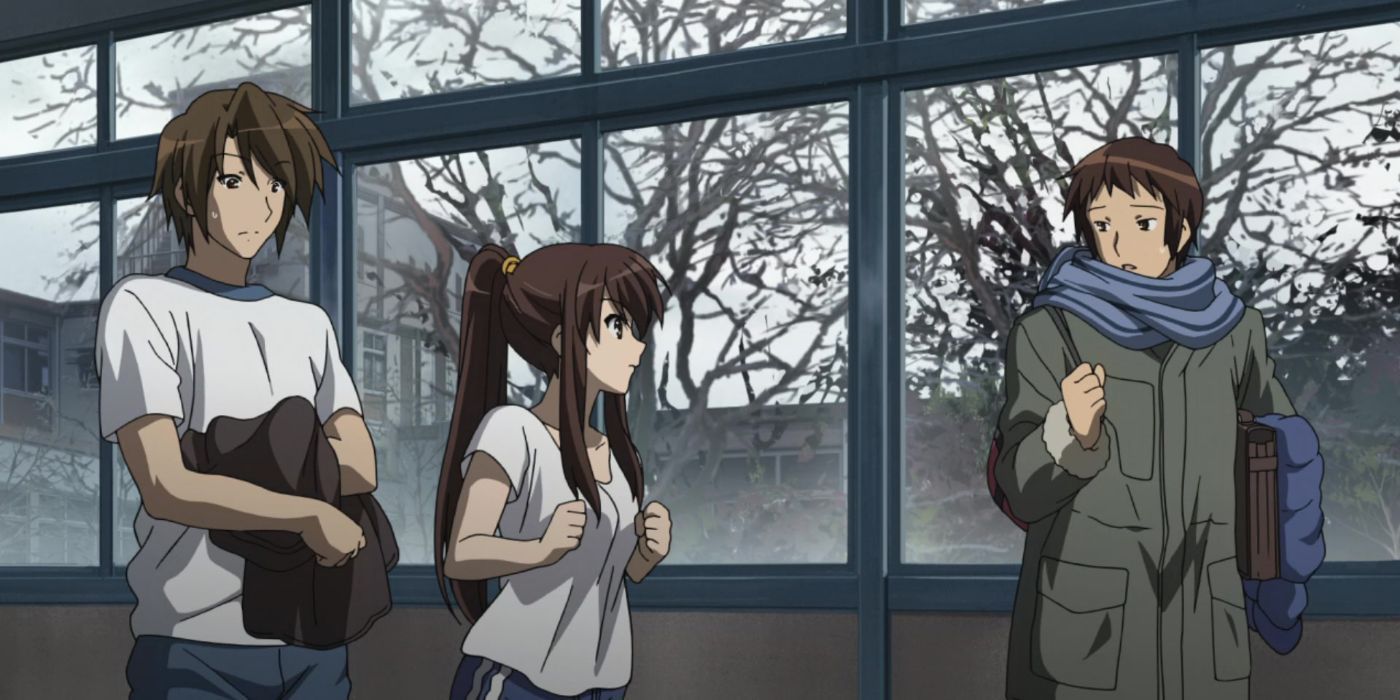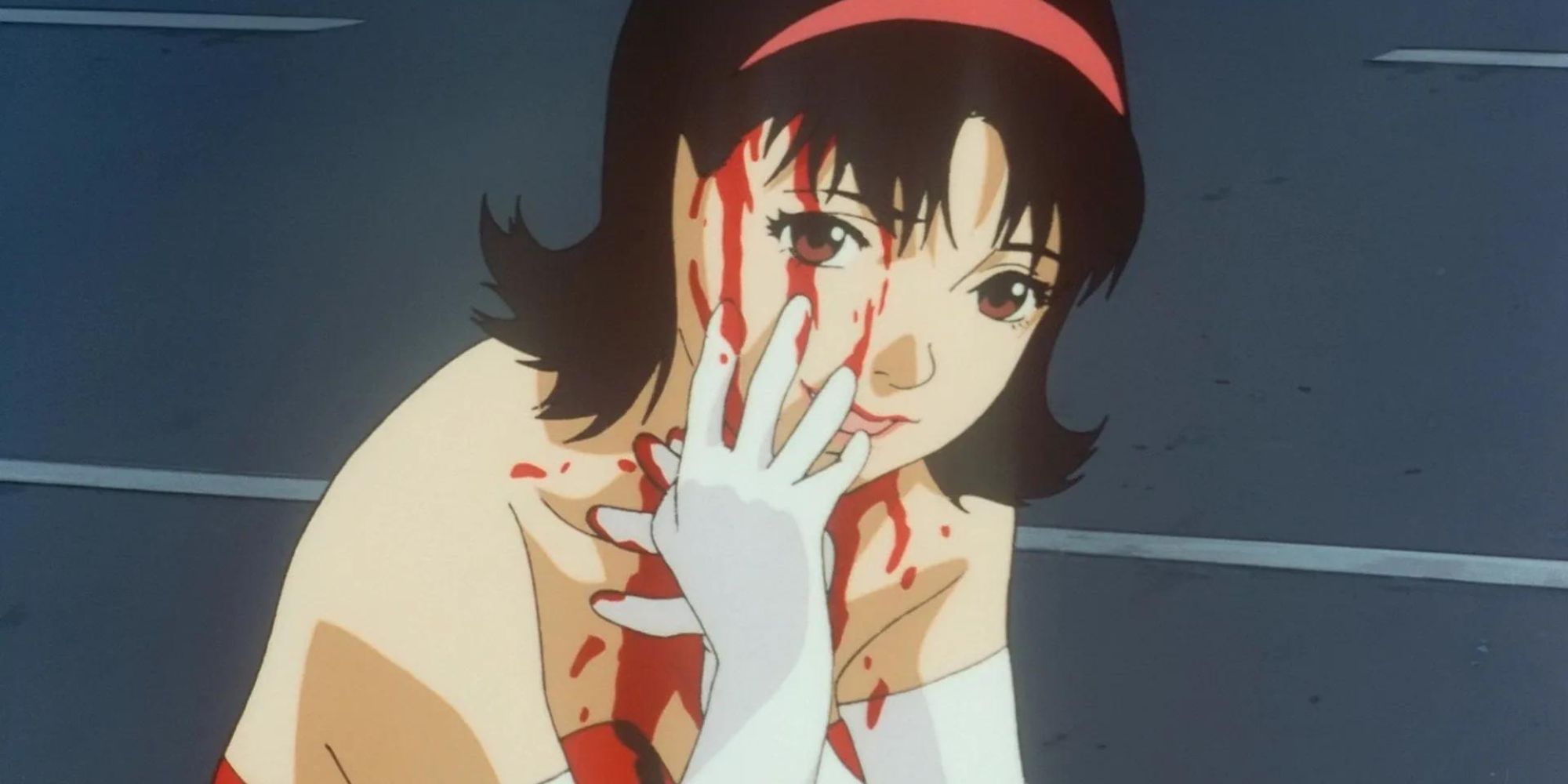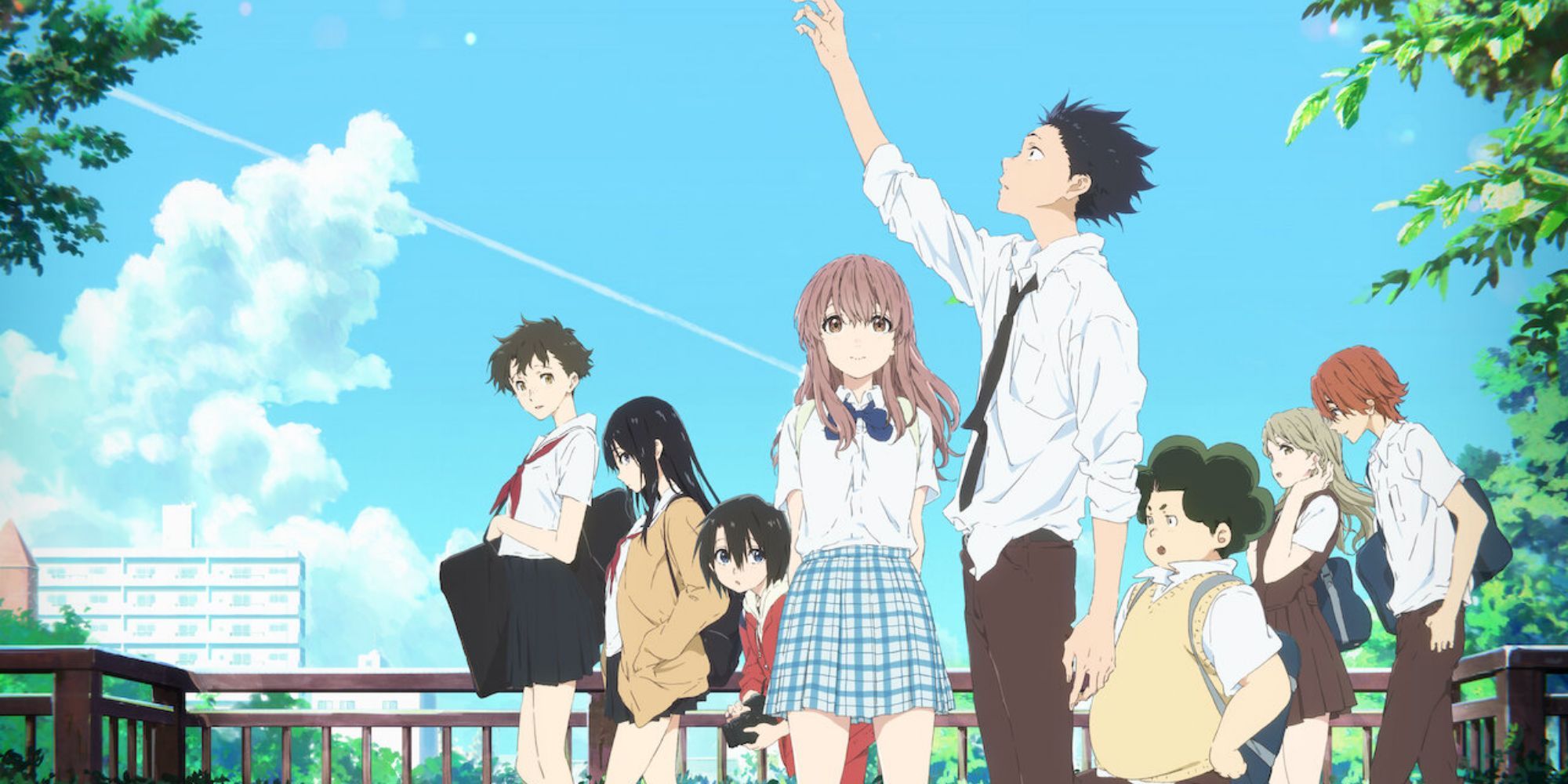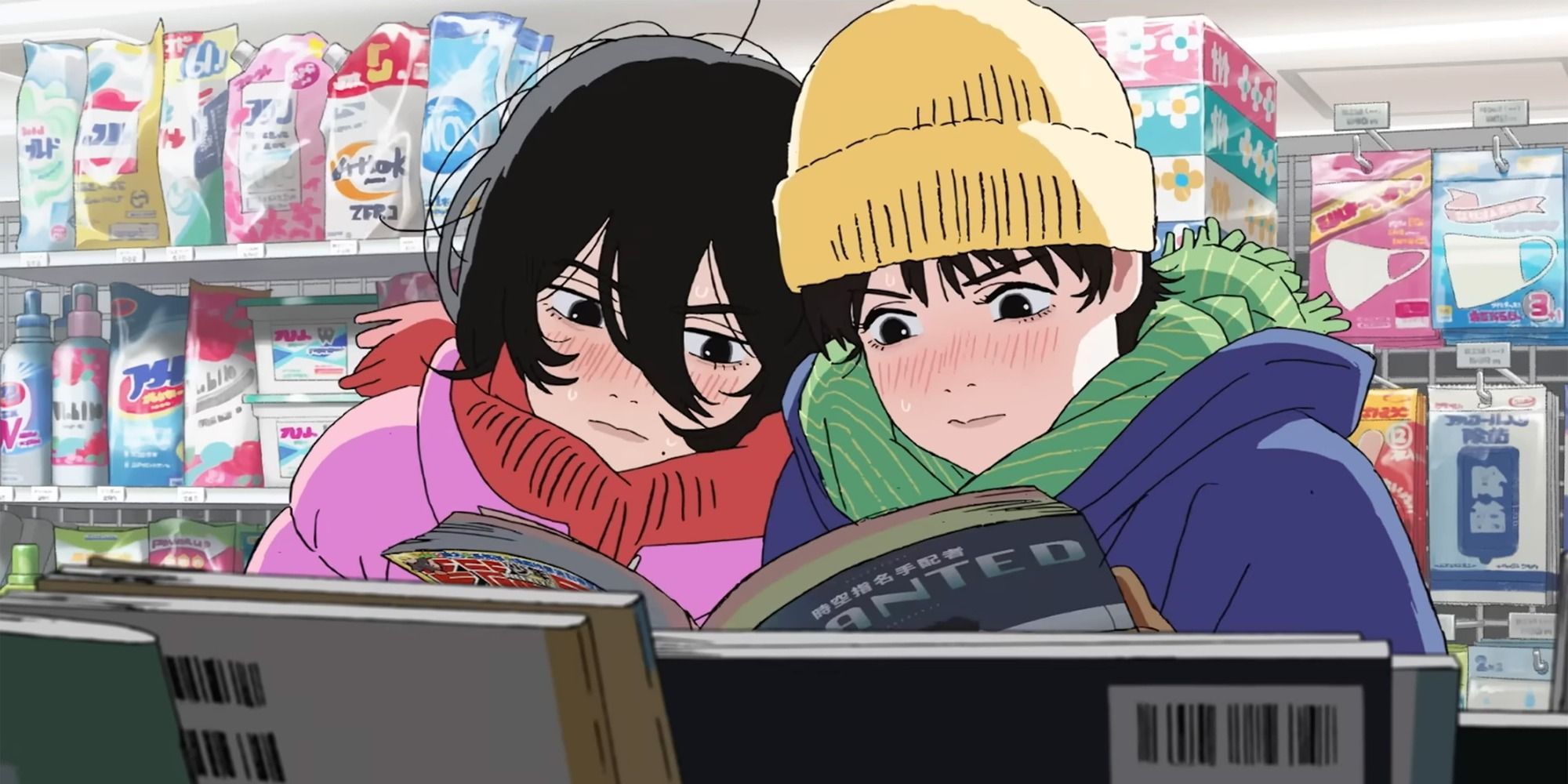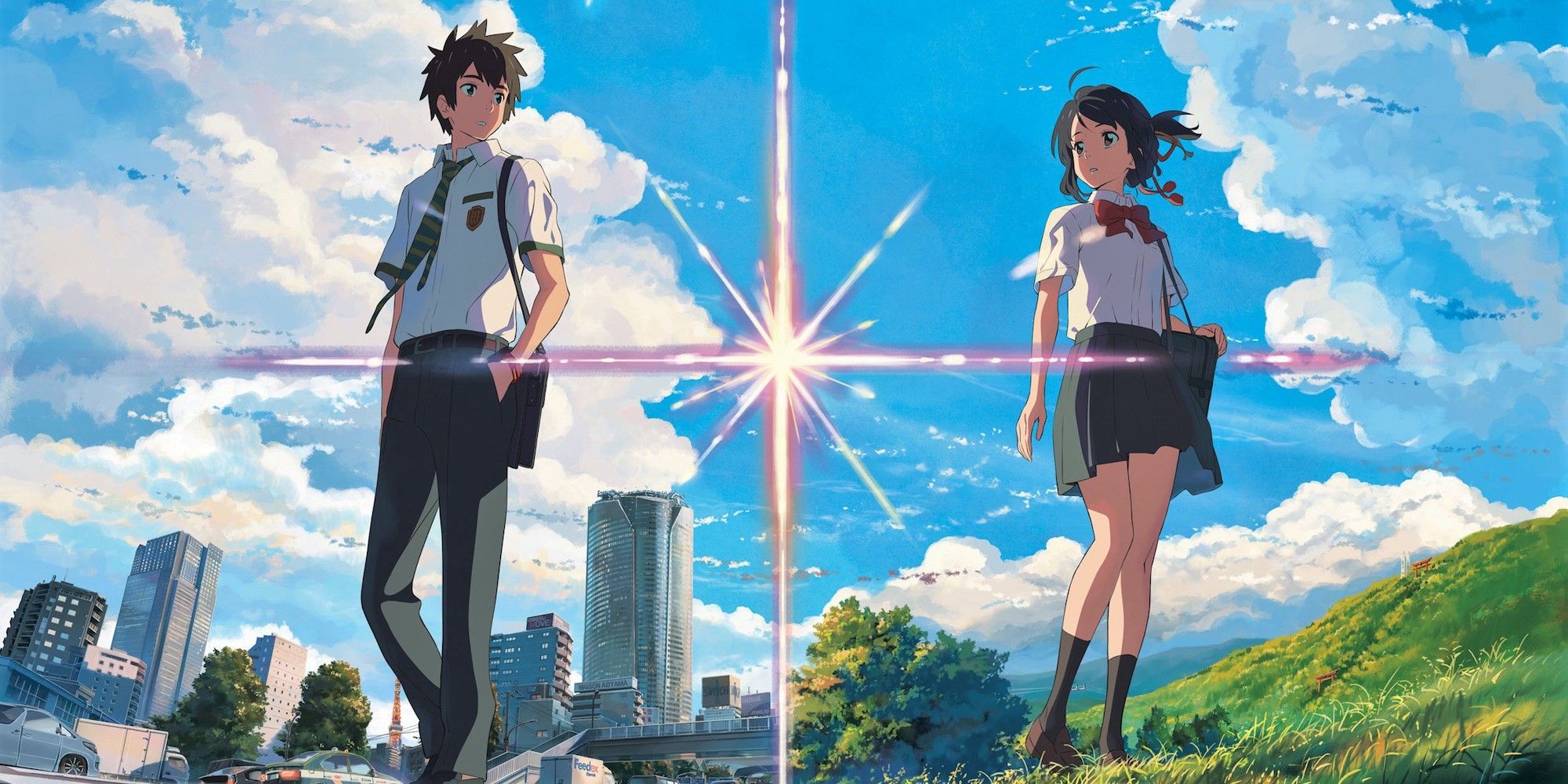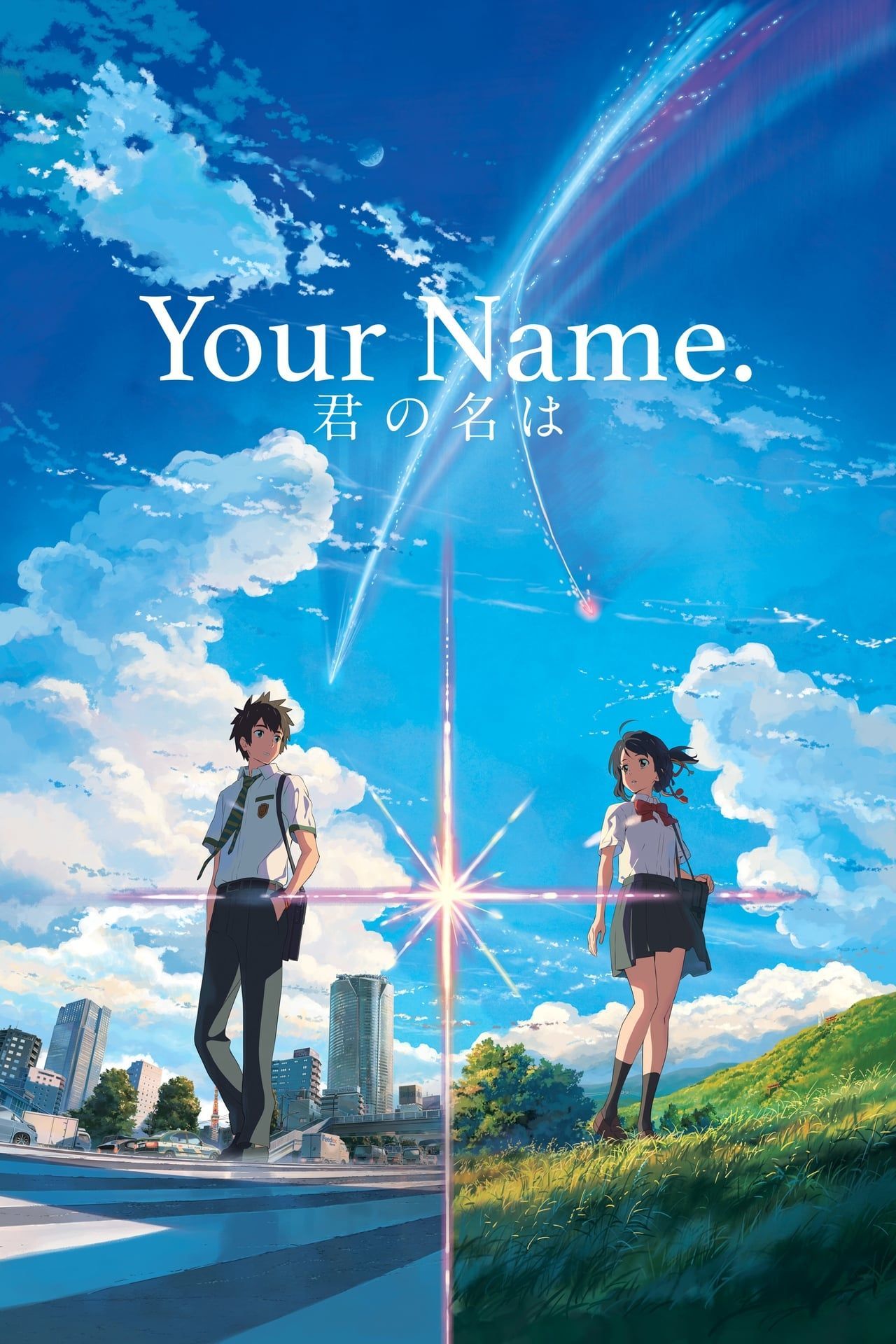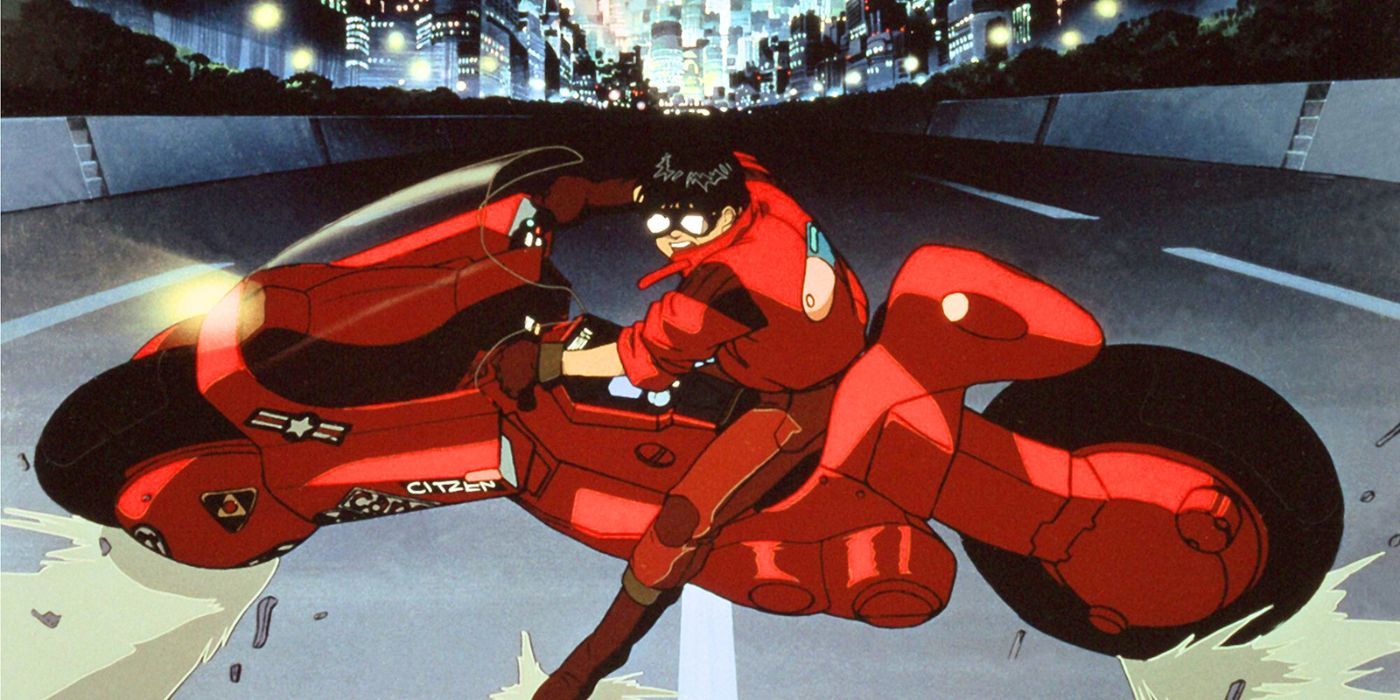While anime as a medium is most often recognized and popular in serialized and episodic form, there have been a multitude of groundbreaking feature films in the anime world since the genre’s beginning. Easily the most critically acclaimed and recognizable name when it comes to anime films is Studio Ghibli, the legendary animation studio with iconic titles like Spirited Away, My Neighbor Totoro, The Tale of the Princess Kaguya, and so many more under their belt.
While the studio is one of the first names that come to mind in the world of feature-length anime, they are far from the only studio creating such high-quality films in Japanese animation, with many films even surpassing Ghibli’s gargantuan standard for quality. Whether it be other classics of the genre that were deeply inspirational alongside early Ghibli films, or more modern films that took inspiration from Ghibli classics yet transformed and modernized in execution, there are a lot of great offerings for non-Ghibli anime films.
10 ‘Night on the Galactic Railroad’ (1985)
Directed by Gisaburo Sugii
A spiritual and somber anime experience that follows a similar style of calm melancholy as early Ghibli films, the allure of Night on the Galactic Railroad makes it a perfect underrated animated movie. The film follows young feline boy Giovanni, who lives a draining life due to being often ridiculed by his peers at school and emotionally distant from those at his work and home. Just as his isolation seems to be getting the worst of him, a mysterious train traveling far across the universe arrives, so he hops on the train accompanied by his school acquaintance, Campanella.
Night on the Galactic Railroad is a film that is massively elevated by its alluring energy and distinct vision for childlike whimsy and innocence. Seeing a wide variety of different people and societies through the lens of Giovanni and Campanella makes for a simple yet deeply gratifying experience, even if it certainly leans on the stranger side of things. While it may be based on a children’s book, the film may be too surrealist and abstract for young audiences to fully appreciate, yet its unique vision for filmmaking, especially for the era it was released, makes it a true anime hidden gem.
Watch on Amazon Prime
9 ‘Summer Wars’ (2009)
Directed by Mamoru Hosoda
A wildly creative mixture of a high-stakes virtual world action movie and a romantic family drama, Summer Wars balances these two completely different stories in a seamless and effective way. The film follows young student Keiji, who acts as a part-time moderator in the massive online virtual world of “OZ” as he ends up being framed for hacking the world by a high-end artificial intelligence known as “Love Machine”. At the same time, Keiji ends up being invited by a classmate to act as her fiancé on her grandmother’s 90th birthday.
Summer Wars makes the most of director Mamoru Hosoda‘s experience with other anime stories filled with creative character designs, like Digimon and One Piece, to create a perfect mixture of wonder and emotional weight. While the clear draw comes from the deeply expressive world of OZ, the mellow rom-com-styled side plot of the large family gathering and fake dating adds some much-needed variety to the pacing and story.
Buy on Amazon
8 ‘The Disappearance of Haruhi Suzumiya’ (2010)
Directed by Yasuhiro Takemoto and Tatsuya Ishihara
Adapted from the fourth light novel in the Haruhi Suzumiya series, The Disappearance of Haruhi Suzumiya directly follows events of the previous television series for its enthralling Christmastime sci-fi mystery. The film follows the SOS Brigade setting up plans for a Christmas time festival among friends, yet only a few days later, one member of the brigade, Kyon, has his entire world flipped upside down. Kyon arrives at school one day to see that Haruhi Suzumiya has gone missing, none of his classmates remember anything about her, him, or the Brigade, and Kyon is the only one who remembers Haruhi.
The Disappearance of Haruhi Suzumiya manages to accomplish the near-impossible by not only acting as an effective finale to a fan-favorite series but effectively standing on its own merits without requiring a viewing of the original series. Its simple yet enthralling premise of widespread disappearance as if they never existed instantly gets the audience invested and intrigued in the overarching mystery. It easily makes for one of the best anime movies of the 2010s, made that much better for those already familiar with these beloved characters.
Buy on Amazon
7 ‘Mind Game’ (2004)
Directed by Masaaki Yuasa
One of the greatest strengths that the medium of anime has been able to provide is the seemingly limitless amount of avenues for creative expression in terms of storytelling, visuals, and overarching themes. No film quite effectively embellishes these aspects quite like Mind Game, a wild journey across time and space that uses a wide variety of different animation styles to tell its story. The film sees awkward loner Nishi, who after an encounter with a long-time crush, ends up losing his life in a bar altercation, sending him on a wild journey to heaven and back that gives him a newfound sense of bravery.
Mind Game seems to have no limits when it comes to creative possibilities, with frequent wild and unpredictable setpiece that continuously create both excitement and humor as the film continues. However, even with its most absurdist and chaotic elements, the core of what makes Mind Game work so well is its overarching themes of the fluidity of life itself. Especially in its final moments, the film has a to to say about how everyone has their own overarching stories that just happen to intersect with one another in fleeting moments of time.
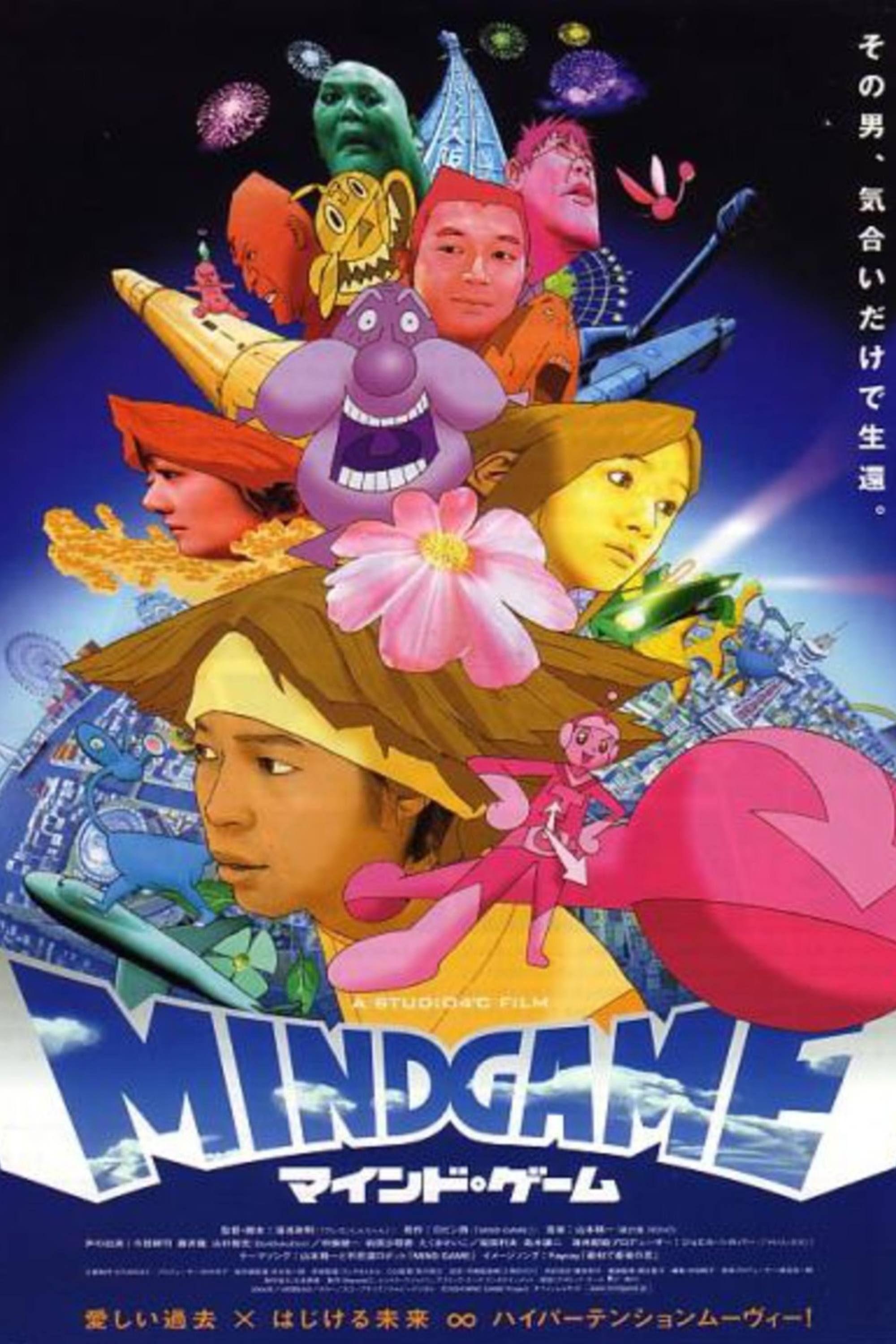
- Release Date
- August 7, 2004
- Cast
- Koji Imada , Sayaka Maeda , Takashi Fujii , Seiko Takuma , Tomomitsu Yamaguchi , Toshio Sakata , Jôji Shimaki , Rintaro Nishi , Kenichi Chujou
- Runtime
- 103 Minutes
Watch on Hoopla
6 ‘Blue Giant’ (2023)
Directed by Yuzuru Tachikawa
A stylish and mesmerizing love letter to the art of jazz music and live performance in general, Blue Giant perfectly understands the energy and weight that playing an instrument can provide. The film follows high school student Dia Miyamoto on his dedicated journey to become an all-star Jazz sensation, spending many nights under the cold sky and practicing saxophone to his heart’s content. He soon leaves his hometown for the nightclub life of Tokyo, teaming up with a professional pianist and a long-time friend as they become the next up-and-coming jazz stars.
Blue Giant is unmatched in the world of anime when it comes to its music and score, featuring a cacophony of top-notch performances and jazz music that never fail to touch one’s soul and heart. The animation does an equally effective job of giving said music the maximum impact required, even shifting between a classic 2D animation style and a stylized 3D animation during specific music sequences. The film has only grown more of a following since its release, easily being considered one of the best anime movies of the 2020s so far.
Watch on Netflix
5 ‘Perfect Blue’ (1995)
Directed by Satoshi Kon
Satoshi Kon was one of the most acclaimed and legendary names when it came to feature-length anime, creating many exceptional thrillers and dramas that have a powerful influence even outside the anime genre. One of the director’s greatest cinematic achievements was that of Perfect Blue, a disturbing and powerful psychological thriller that has only grown more powerful and relevant in recent years. The film follows rising pop star Mina who finds herself on the verge of a psychological break after being the victim of a deranged and obsessed stalker.
Perfect Blue taps into a raw and unfiltered style of animation filmmaking that has only truly been explored in the realms of anime, with deeply disturbing content and themes that are fully amplified by the medium of animation. The film was already largely beloved and acclaimed upon release as a striking psychological thriller, yet its themes of parasocial relationships and the price of fame have only become more timely in the era of social media and the digital age.
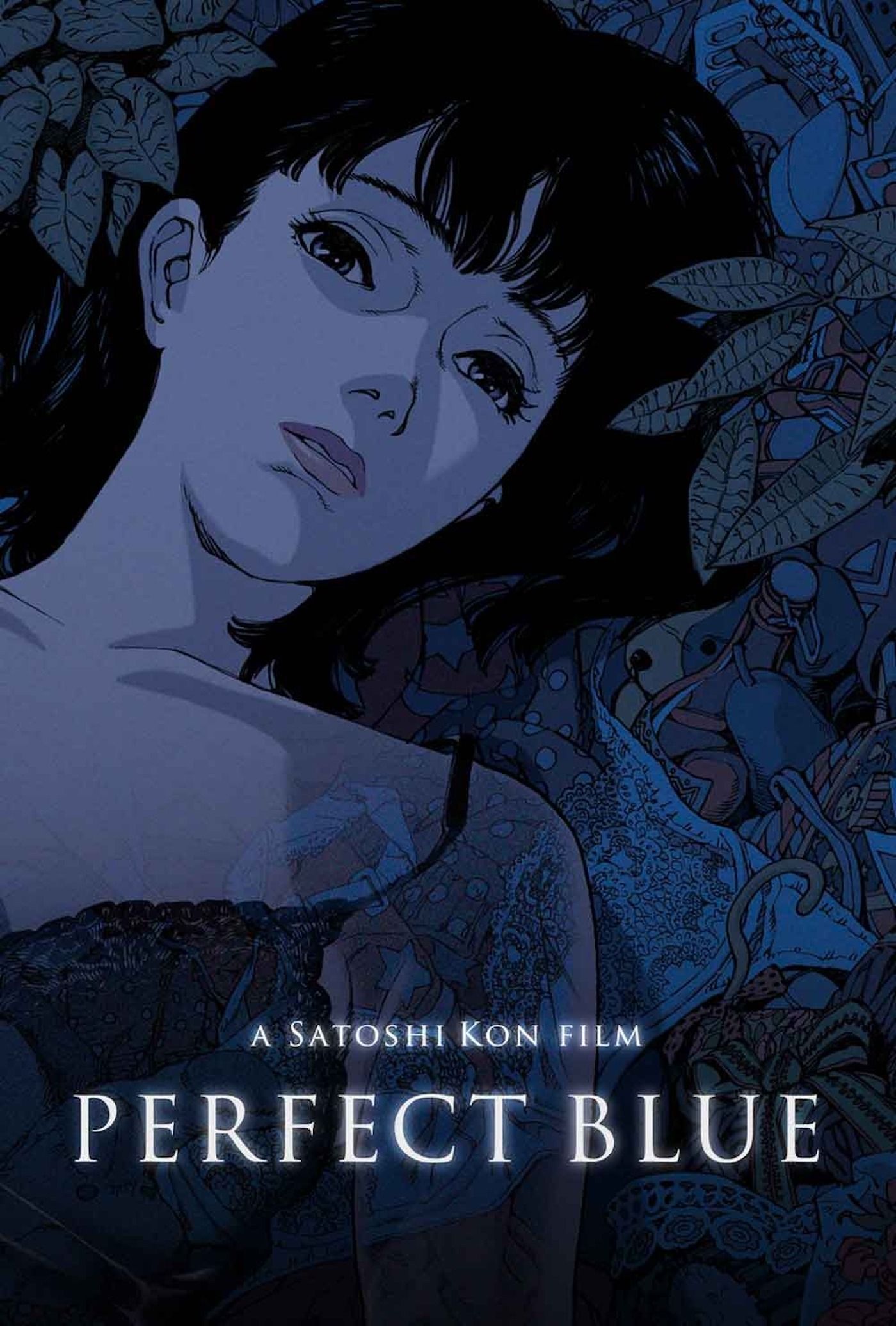
Perfect Blue
- Release Date
- February 28, 1998
- Director
- Satoshi Kon
- Cast
- Junko Iwao , Rica Matsumoto , Masaaki Ôkura , Shinpachi Tsuji
- Runtime
- 81
Rent on Amazon Prime
4 ‘A Silent Voice’ (2016)
Directed by Naoko Yamada
Largely infamous for being one of anime’s biggest tearjerkers, A Silent Voice is a deeply emotional story of self-destruction and dealing with the hardships of depression. The film follows the tumultuous and ever-changing connection between Shouya Ishida and deaf new student Shouko Nishimiya, as Shouya initially made Shouko’s life deeply painful by bullying her in elementary school. However, now in high school, Shouya has been reflective and deeply ashamed of his actions as a child, hoping to atone for what he’d done and hoping to make it up to Shouko.
A Silent Voice has quickly become one of the most acclaimed and notable anime films of recent memory thanks to just how effectively it tugs at the heartstrings with its painful and gripping story. The characters of Shouya and Shouko are both deeply relatable for a variety of reasons, with audiences being able to easily connect with their realistic and painful fights with depression and self-hatred. The film also has a stellar animation style that even further amplifies its central themes, with top-notch editing to make each pivotal moment that much more effective.
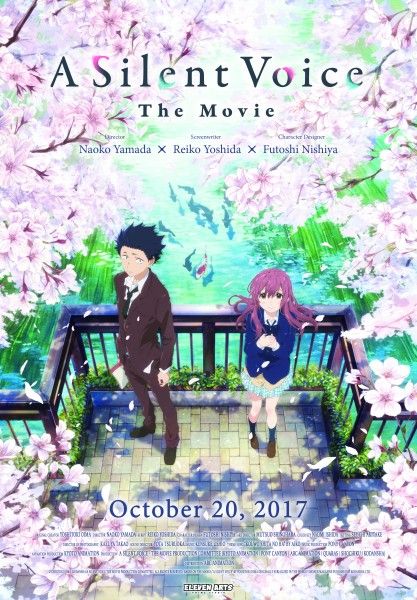
A Silent Voice
- Release Date
- September 17, 2016
- Director
- Naoko Yamada
- Cast
- Miyu Irino , Saori Hayami , Aoi Yuki
- Runtime
- 130 minutes
Rent on Amazon Prime
3 ‘Look Back’ (2024)
Directed by Kiyotaka Oshiyama
A short yet striking and beautiful story from the creator of Chainsaw Man, Look Back is a story all about the weight and importance of connection, as well as the difficulties of separation. The film follows the friendship of the outgoing Fujino and the reclusive Kyomoto, who form an unexpected bond due to their shared love of manga and a passion for drawing. Their friendship initially started as a fierce rivalry, with Fujino being deeply determined to create more and more beautiful art as a response to seeing the work done by Kyomoto.
Look Back has easily been one of the biggest anime surprises of recent years, telling a simple yet beautiful story of friendship that has tugged the heartstrings of all that have bore witness to its mastery. More than simply another anime story about the important bonds of friendship, Look Back adds weight to its story through an ingrained understanding of the excitement and fervor that comes from creation. Whether it be a simple doodle or a sprawling work of art, the very essence of creating something new with your own hands is perfectly exemplified within Look Back.
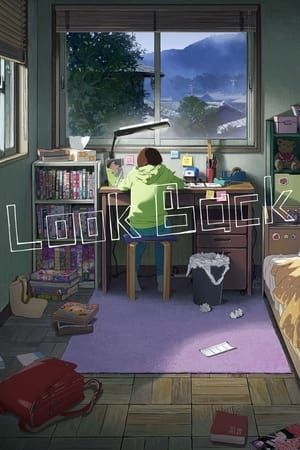
Look Back
- Release Date
- June 28, 2024
- Director
- Kiyotaka Oshiyama
- Cast
- Yumi Kawai , Mizuki Yoshida
- Runtime
- 58 Minutes
Watch on Amazon Prime
2 ‘Your Name’ (2016)
Directed by Makoto Shinkai
When it comes to original anime movies of the 21st century, few have become as instantly iconic as Makoto Shinkai‘s Your Name, an instantly engaging body-swap story with an unexpected twist and heavy emotional core. The film follows the story of high schoolers Mitsuha and Taki, who mysteriously have their lives connected as they seem to switch bodies every night. As they continue to switch bodies despite being in completely different cities, they form a line of communication and eventually find a way to work together alongside their swapping.
The initial premise of Your Name is enough to get audiences hooked and intrigued to see the dynamic and evolving romance between these two characters. However, it’s the film’s hidden secrets and powerful final act that make it one of the best anime films of recent memory, playing against the expectations of anime movies as a whole to tell its masterful story. While Shinkai has continued to create several other exceptional anime movies in the years since its release, Your Name is still easily his finest work when it comes to anime filmmaking.
1 ‘Akira’ (1988)
Directed by Katsuhiro Otomo
One of the greatest advantages that Studio Ghibil’s filmography has held over other anime films is their unending influence and legacy over film as a whole, yet one anime film that manages to surpass even Ghibli’s most influential films is Akira. A groundbreaking and revolutionary sci-fi dystopian action film, Akira follows a teenage biker gang traveling the streets of Neo-Tokyo, when young member Tetsuo ends up being taken and used for a shadowy government experiment. After being given unrestrained psychic abilities, seemingly nothing can now stop Tetsuo from completely taking over Neo-Tokyo.
Nearly every frame of Akira can be considered a work of art in itself, with a beautiful and deeply engrossing world that immediately sucks the audience in with its bright colors and striking concepts. The film has an undeniable legacy not just for anime films, but for science fiction films in general, directly inspiring some of the biggest sci-fi blockbusters of all time and featuring iconic sequences still mentioned in pop culture to this day.
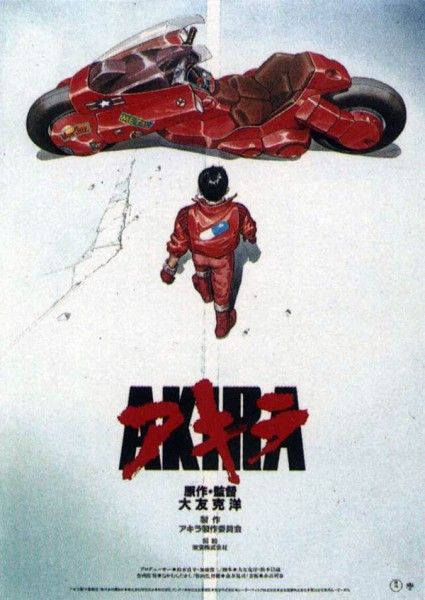
- Release Date
- July 16, 1988
- Director
- Katsuhiro Otomo
- Cast
- Mitsuo Iwata , Nozomu Sasaki , Mami Koyama , Taro Ishida , Tesshô Genda , Mizuho Suzuki , Tatsuhiko Nakamura , Fukue Itō , Kazuhiro Shindō
- Runtime
- 124 Minutes
Watch on Crunchyroll
